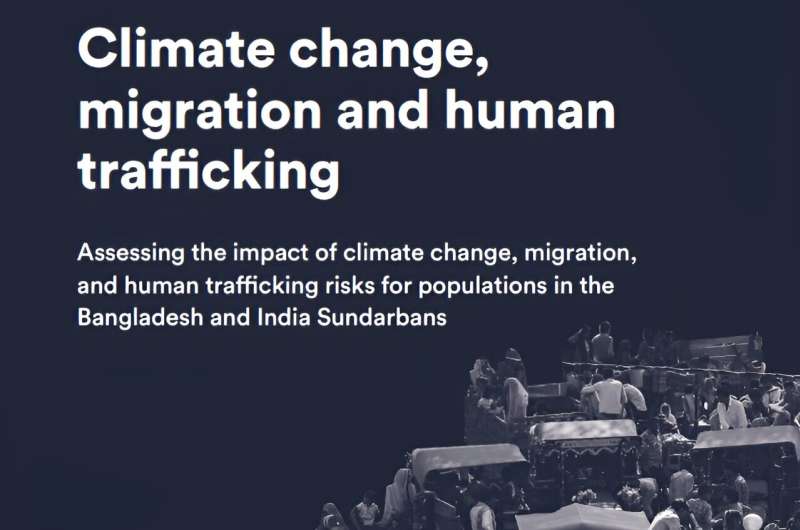This article has been reviewed according to Science X's editorial process and policies. Editors have highlighted the following attributes while ensuring the content's credibility:
fact-checked
trusted source
proofread
Climate-change-induced migration increases the risk of human trafficking and modern slavery, report finds

Climate-change-induced migration has been linked to the risk of human-trafficking and modern slavery, a new study from the Rights Lab at the University of Nottingham has found.
A new report from the Rights Lab, in partnership with the Catholic Agency for Overseas Development (CAFOD), Caritas Bangladesh, OKUP and Caritas India, adds important evidence to emerging literature on the critical link between climate change, migration and human trafficking.
The report focuses on the south-west border region of Bangladesh and India, close to the Sundarbans mangrove forest, which has some of the most vulnerable districts to climate change in the world.
The report contains findings from the largest ever household study in the region, with more than 1,200 households, providing evidence for the inextricable connection between climate change, migration, and human trafficking.
The report found that more than 88% of households in Bangladesh and 61% in India reported that their livelihoods have been affected by climate change and over a third of households had migrated in the past five years. In addition to the risks to livelihoods, there were also cases of recruitment payments and debt bondage.
Researchers, led by Dr. Bethany Jackson from the University of Nottingham Rights Lab, found that criminal groups were also likely to use disruption caused by climate change to seek out individuals to exploit, and individuals were likely to be led into situations of illegal activity after infrastructure, such as houses, had been destroyed.
Jackson said, "The experiences of communities to climate change impacts in the Sundarbans region is becoming more acute and the impacts this is then exhibiting on those communities in terms of their livelihoods, choice to migrate, and vulnerability to human trafficking is a vital interconnected issue to explore.
"By undertaking this study on a small region, but involving over 1,200 households, we can provide nuanced data on the impacts of climate change. Focusing on concentrated areas enables our partners in-country to provide tailored support and interventions to community members.
"Being able to generate and deliver research alongside the partners with the support of CAFOD has been a great pleasure, and it is exciting to see the vital work that is now being undertaken in the region being underpinned by the study's key findings on risks and access to support services."
Provided by University of Nottingham





















